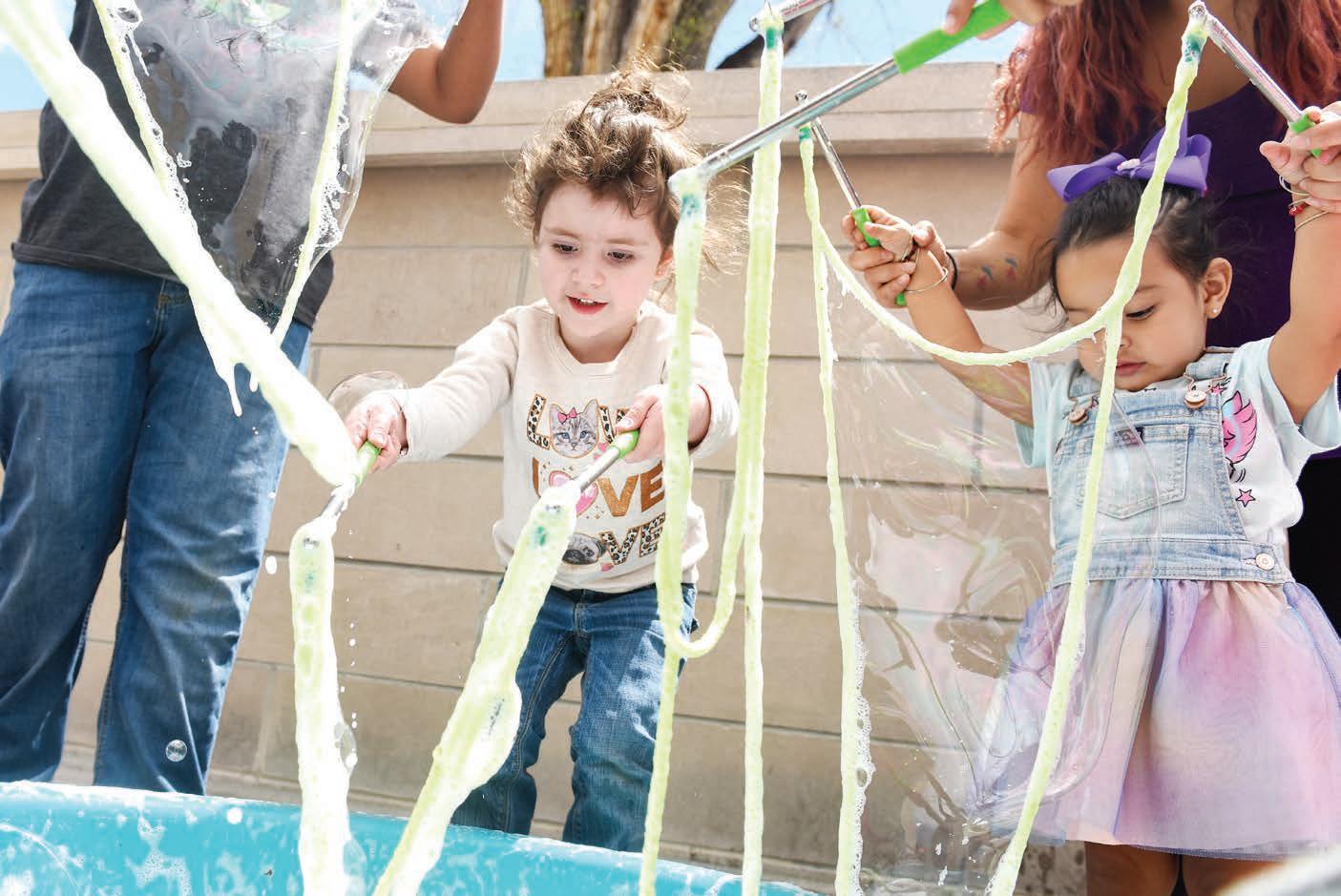
3 minute read
Celebrating children
Staff Report
Día del Niño, or Children’s Day, is a celebration that originated in Mexico. Today, it is also celebrated in many communities across the U.S.
“ is day recognizes children, pays homage to their importance in society and endorses their wellbeing,” states a news release from the Mexican Cultural Center.
e Mexican Cultural Center is putting on its ninth annual Día del Niño this year, with opportunities to celebrate through activities and Science and Cultural Facilities District (SCFD) Free Days throughout April. Some of these organizations include the Cly ord Still Museum, Colorado Symphony, Denver Botanic Gardens, Denver Center for the Performing Arts, Denver Public Library and Denver Zoo.
A highlighted event is Día del Niño at Denver Museum of Nature and Science, which takes place from 9 a.m. to 5 p.m. April 30. is day will o er free entry and a variety of family-friendly activities. Another is the Día del Niño Celebration at the Denver Art Museum, which takes place from 10 a.m. to 5 p.m. April 30. is event will include free entry, a variety of live entertainment and performances, and the Denver Preschool Program will be bringing guest readers to read the book, “How Do Dinosaurs Go to School?” by Jane Yolen, in both English and Spanish.
“We are delighted to honor one of Mexico’s traditional holidays celebrating Day of Children,” said Jesse Martinez, executive director of the Mexican Cultural Center. “ ese activities are a great way for the community to come together to celebrate and honor children, and where parents to be a kid too.”
To learn more about this year’s Día del Niño events, visit mccdenver.org/dia-del-nino.

Editor


too much tape securing the paper or too many ribbons to untie.
Parkinson’s is weird because some changes in my dad happened slowly while others seemed to come about all of a sudden.

For instance, ve years ago, my dad could still take the family out for a day of boating on Chat eld Reservoir. And, just one year ago, he was driving his truck with no problems. Today, my dad cannot do those things. He cannot walk up stairs alone.
Falling is one of the more serious complications of the disease. Falls can be fatal if they happen at the wrong time in the wrong place, like on a staircase or slipping on ice somewhere on the ve-and-a-half acre property in Bailey where my parents live.
He did experience a couple of falls this winter. Both were serious enough that they required hospitalization and surgery, followed by weeks of rehab in a nursing home.
During one of our visits in the nursing home, in the metro area, my dad said he’s doing OK. en he said, “I want to be closer to the mountains.” I told him he needs to try to remember not to fall so he could be at home in the mountains again.
Now he has a walker, but his Parkinson’s makes him forget that he needs to use it. e dementia seems to be coming faster. So, it’s a cycle: he tries to get up out of his chair and walk somewhere and somebody, usually my mother, has to stop him or he likely falls again. Falling is now part of my dad’s life – and our family’s.
It is still unknown why or how people develop Parkinson’s. Research on the causes and e orts to lessen the severity are making progress. According to the Parkinson’s Foundation, “scientists believe a combination of genetic and environmental factors” are to blame. Still, there is no cure for Parkinson’s. I like to think that someday there will be one. Science is already going in the right direction, with rst-of-its-kind surgeries already developed and being perfected, and new movement-based therapies that directly target the parts of the brain that help people with Parkinson’s gain control of their movement.
If a big breakthrough on Parkinson’s comes, it probably will not be in time for my dad, maybe not even for me if I ever develop the disease. I hold hope for the possibility for big improvements, or even a cure, in the lifetimes of my nieces or their children.
Awareness months o er us all a time for re ection. ey give people hope and motivate them and, perhaps most importantly, create the opportunity to share knowledge and personal stories, like mine and my dad’s.
April is Parkinson’s Awareness Month. It also happens that it is the month of my dad’s birthday. We’ll all get together, I’m sure. In my mom and dad’s mountain home.









